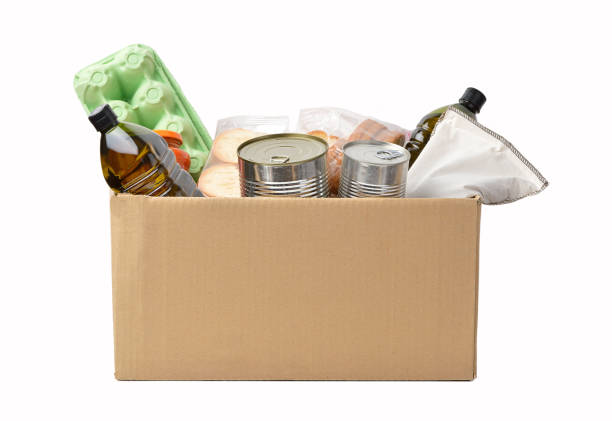Donate Food: A Guide to Making a Difference
Introduction
In a world where millions go to bed hungry each night, the act of donating food can make a significant impact. Food donation is not just about providing meals; it’s about offering hope, dignity, and a chance for a better tomorrow. Whether you're an individual looking to make a difference, a business aiming to give back to the community, or an organization seeking to support those in need, understanding the importance and process of food donation is crucial.
The Importance of Donating Food
Food insecurity is a global issue affecting millions of people, including children, the elderly, and vulnerable communities. By donating food, you are contributing to the fight against hunger and malnutrition. Your contributions help ensure that those who are struggling can have access to nutritious meals. Beyond immediate relief, food donations can support long-term health and development, breaking the cycle of poverty and hunger.
Types of Food Donations
When considering donating food, it’s essential to understand the different types of donations that can be made. These include non-perishable items, fresh produce, prepared meals, and financial contributions to food banks and hunger relief organizations. Each type of donation plays a unique role in supporting food security and providing for diverse dietary needs.
Non-Perishable Food Items
Non-perishable food items, such as canned goods, dried beans, pasta, rice, and cereals, are the backbone of many food donation programs. These items have a long shelf life, making them ideal for storage and distribution. They are versatile and can be used to prepare a variety of meals, ensuring that recipients have access to essential nutrients.
Fresh Produce and Perishable Goods
While non-perishable items are crucial, fresh produce and perishable goods are equally important. Fruits, vegetables, dairy products, and meat provide essential vitamins and minerals that are vital for health. Donating fresh produce can be more challenging due to its shorter shelf life, but many food banks and community programs have systems in place to distribute these items quickly.
Prepared Meals
Prepared meal donations are an excellent way for restaurants, caterers, and individuals to provide immediate relief. These meals are ready to eat and can be a lifeline for those who may not have the means to cook. It’s important to ensure that prepared meals are handled and stored correctly to maintain food safety.
Financial Contributions
Monetary donations to food banks and hunger relief organizations can have a significant impact. These contributions allow organizations to purchase food in bulk, ensuring a steady supply of nutritious items. Financial donations also support operational costs, helping these organizations to continue their critical work.
How to Donate Food
Donating food is a straightforward process, but it’s important to follow best practices to ensure your contributions are effective and safe. Here are some steps to consider:
Find a Reputable Organization
The first step in donating food is finding a reputable organization. Food banks, shelters, and community kitchens are excellent places to start. Research local organizations and understand their specific needs and guidelines for donations.
Check Donation Guidelines
Each organization may have specific guidelines for food donations. It’s crucial to adhere to these guidelines to ensure your contributions are useful. This may include checking expiration dates, ensuring packaging is intact, and following any restrictions on perishable items.
Organize a Food Drive
If you’re looking to make a larger impact, consider organizing a food drive. This can be done in your community, workplace, or school. A food drive collects a significant amount of food in a short period, providing a substantial contribution to those in need.
Safety and Hygiene
Maintaining food safety and hygiene is paramount when donating food. Ensure that all items are stored properly and transported safely. For prepared meals, follow food safety guidelines to prevent contamination and spoilage.
The Impact of Food Donations
Food donations have far-reaching impacts beyond immediate hunger relief. They support overall community health, contribute to social stability, and foster a sense of solidarity and compassion. By donating food, you are not only helping individuals but also strengthening the fabric of society.
Supporting Local Farmers and Producers
Food donations can also support local farmers and producers. By purchasing and donating locally grown produce, you contribute to the local economy and promote sustainable farming practices. This approach ensures that food donations are fresh, nutritious, and environmentally friendly.
Corporate Food Donations
Businesses and corporations can play a significant role in addressing food insecurity through food donations. Many companies have programs that allow employees to donate food or funds. Additionally, businesses can partner with food banks and community organizations to provide regular contributions and support food drives.
Volunteering and Advocacy
In addition to donating food, volunteering your time can have a profound impact. Food banks and hunger relief organizations often rely on volunteers to sort, package, and distribute food. Advocacy is another powerful way to support food security. By raising awareness and advocating for policies that address hunger, you can contribute to long-term solutions.
The Role of Technology
Technology is playing an increasingly important role in food donation. Apps and platforms have been developed to connect donors with food banks and recipients, streamlining the donation process. These technologies help reduce food waste by ensuring that surplus food reaches those in need efficiently.
Addressing Food Waste
Food donation is a critical strategy in addressing food waste. In many countries, a significant amount of food is wasted each year. By donating surplus food, businesses and individuals can help reduce this waste and provide valuable resources to those in need.
Conclusion
Donating food is a powerful way to make a difference in the lives of others. Whether you are contributing non-perishable items, fresh produce, prepared meals, or financial support, your donations provide essential relief to those facing food insecurity. By understanding the types of donations, following best practices, and supporting local organizations, you can ensure that your contributions have a meaningful impact. Together, we can work towards a world where everyone has access to the nutritious food they need to thrive.




